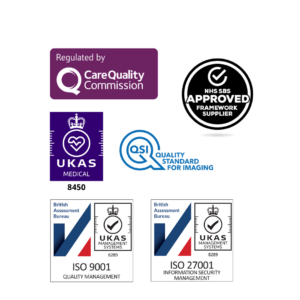Requirements
Provide relevant clinical information – Accurate clinical information helps to ensure that the correct examinations, or views, are performed in order to answer the clinical question. Provision of clinical information is necessary to justify the examination and is, therefore, a legal requirement.
Provide sufficient information to identify the patient – The Company undertake an eight point identification check on each patient, which covers patient demographics and the examination requested, to ensure that the correct patient gets the correct examination on the correct side at the correct time. By using the full and correct information on the referral form, the patient checks and booking in process are safer and more efficient.
Discuss the proposed examination with the patient or guardian – As a referrer, you must discuss the proposed examination with the patient / guardian and consider the possibility of pregnancy for female patients of reproductive age.
Referral guidelines – the Royal College of Radiology (RCR) has published a set of clinical guidelines which is available to you on the internet at www.irefer.org.uk
There are many instances where plain film radiographs provide little information of value, which are listed in the RCR Guidelines. Justification of individual requests will be based on these
Considerations
Non-radiation modalities – When appropriate, refer for a radiation-free alternative e.g. ultrasound or MRI. The RCR guidelines include suggestions for appropriate imaging in many common clinical scenarios.
Minimisation of exposure – There are some important steps that you, as the referrer, can take to minimise radiation exposure for your patients:
Is the examination really necessary?
Will the examination really answer your clinical question? For instance, a plain film of the abdomen in acute renal colic will neither confirm nor exclude the diagnosis of renal colic and will not exclude conditions that mimic renal colic.
Will the results alter your management of the patient? For instance, radiographs of the coccyx after injury do not contribute to management because treatment will be the same whether or not there is evidence of coccygeal injury on the X-ray.
Some other examples of examinations that are often hard to justify are:
Skull radiographs in headache, neurological problems, suspected pituitary problems and past trauma.
Lumbar spine radiographs in patients aged 20 to 55 years with chronic, stable symptoms of back pain.
Avoidance of repetition – Has the examination been done already?
IV Contrast Media – Where radiological examinations require the patient to have IV contrast media, it is important that the referrer considers the creatinine blood level of ‘at risk’ patients such as the elderly and those with known renal impairment.
Magnetic Resonance Imaging
Provide relevant clinical information – Accurate clinical information helps to ensure that the correct examinations, or views, are performed in order to answer the clinical question. Provision of clinical information is necessary to justify the examination and is, therefore, a legal requirement.
Requirements:
As with X-ray referrals, requests for MRI examinations must provide relevant clinical information to ensure the correct examination is performed and sufficient information to identify the patient.
Considerations:
Contraindications – As a referrer you must consider contraindications such as a cardiac pacemaker or pacing wire, cerebral aneurysm clip, cochlear implant, neuro / bio stimulators, any metal implants, any history of penetrating metal injury to their eyes or medical devices attached to their body. This information must be included in the referral.
Pregnant patients – should only be scanned after the risk and benefit of the study has been explained to them by the referrer and after consultation with a radiologist.
IV Contrast Media – Where radiological examinations require the patient to have IV contrast media, it is important that the referrer considers the creatinine blood level of ‘at risk’ patients such as the elderly and those with known renal impairment.
Ultrasound
Requirements
Ultrasound referrals must provide relevant clinical information to ensure the correct examination is performed and sufficient information to identify the patient.
Please note that when you sign an imaging request you take the legal responsibility for the information which it contains.
We are happy to advise with any queries you may have on making a referral, please contact us by telephone: 01293 534 043 or Email: contactus@medicalimaging.org.uk
 MAKE A REFERRAL
MAKE A REFERRAL



